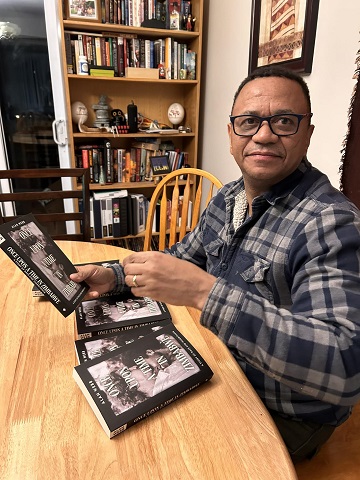The young, talented South African singer Tyla has raised an interesting yet critically important issue around the Coloured racial identity.
Notice that I write Coloured with a capital c to denote how seriously I take this identity. I must confess that in my first decade or so of living here in Canada, I had resigned myself to accepting being called Black. I was tired of explaining my mixed origins to a disinterested audience that seemed content with assigning labels.
I allied myself with different groups of black people and formed an association that I thought would shield me from systemic racism.
It worked – to an extent – but I remain(ed) Coloured at heart.
America’s Influence On Global Culture
Grammy Nominated South African singer Tyla asserting her Coloured Identity raises questions about America’s Influence on Global Culture
I think American culture and values have had too much of an influence on how people see and view themselves.
African Americans have a long and painful history of first slavery and then racial segregation and discrimination, the effects of which they still feel today. However, that history does not give them a monopoly on the suffering and racial identity of people of all African descent the world over.
Strangely, African Americans take offence to the use of the term Coloured and yet conversely, they readily use and embrace the term “nigga” (derived from negroe) and their rappers and other artists have no problem using that derogatory term in put-down phrases like “nigga please!”
Who appoints them as arbiters to determine what is offensive to people of African descent the world over, yet they hypocritically call each other nigger?
WATCH Ancestry DNA Results Amazes Coloured South African Woman

Coloured people in South Africa and Zimbabwe have their histories of suffering, racial discrimination, segregation and marginalization. In fact, Coloureds to this day struggle for recognition as equal citizens under black majority rule. Coloureds are indigenous people of South Africa, Zimbabwe, Namibia, Zambia, Angola, and Mozambique. Coloured people have been around for a very long time. In fact, they go back five hundred years when the Portuguese traders entered Great Zimbabwe from coastal Mozambique at least a century before van Riebeck set foot in Cape Town in 1652.
Coloured is a term that these people have, by and large, come to accept as a unifying national identity of this group of people of mixed racial origin. Any attempts to minimize or dismiss Coloured identity would be to the detriment of people who have always struggled to gain a foothold in the contested space of a blurry black-and-white world.
Coloureds do not have patron saints or guardians to protect them, and therefore, they must continue being their own champions and advocates and push forward their agenda. Many Coloureds are as proud of their Black ancestry as they are of their European and Asian heritage, and to force them to denounce being Coloured would make an entire people disappear with a single penstroke.
Therefore, Coloureds must endeavour to document their history, jealously guard their identity and not allow themselves to be led astray by false narratives of outsiders.
But more critical is that Coloureds must strive for unity within themselves in their diverse communities and uplift each other so that all can be collectively proud of their identity.
Canadian Alan Webb is a Zimbabwean Coloured who has a two decade long association with Bruinou.com and has recently released his debut novel “Once Upon a Time in Zimbabwe” -Ed.
READ Once Upon A Time In Zimbabwe by Alan Webb a Captivating Story of Race and Inheritance








